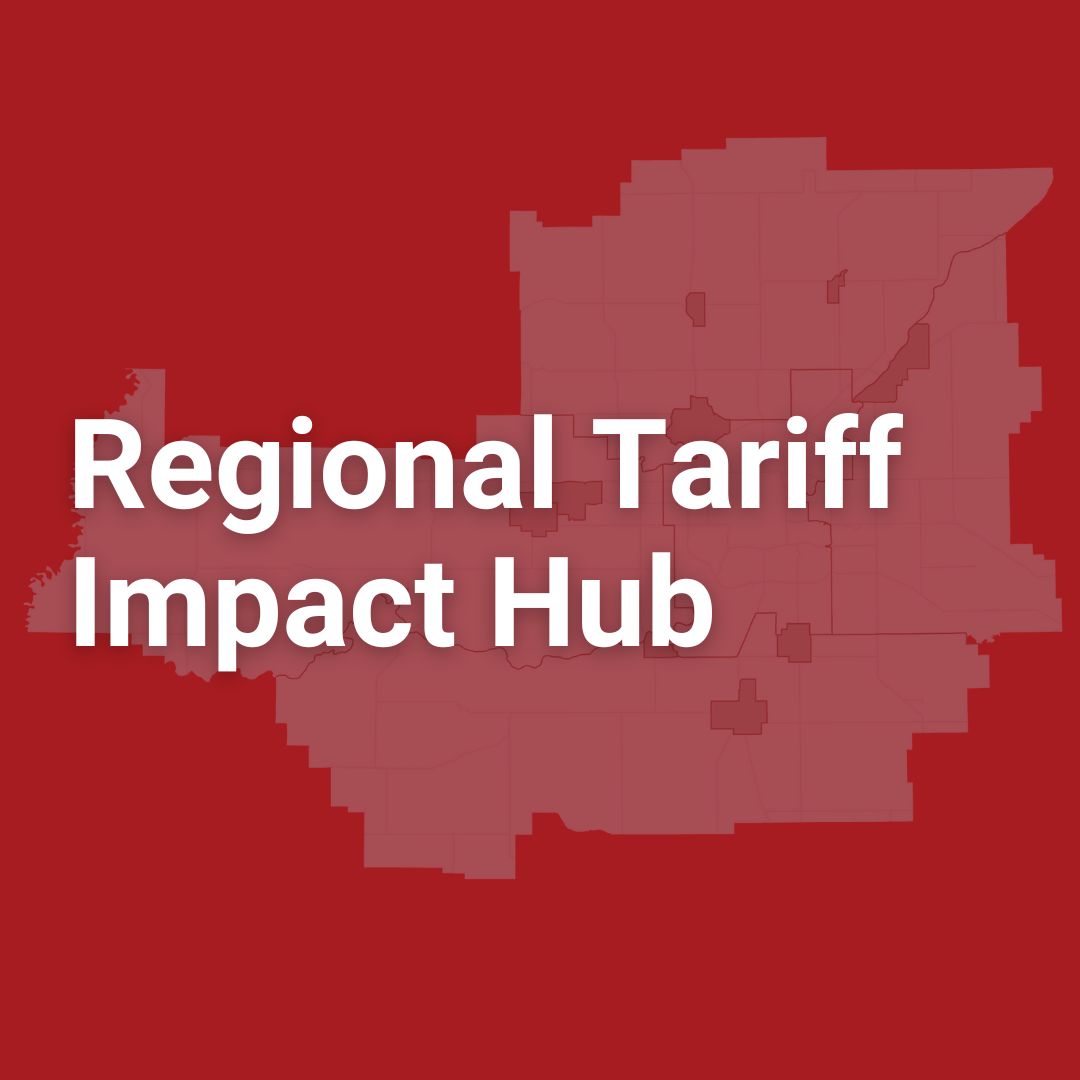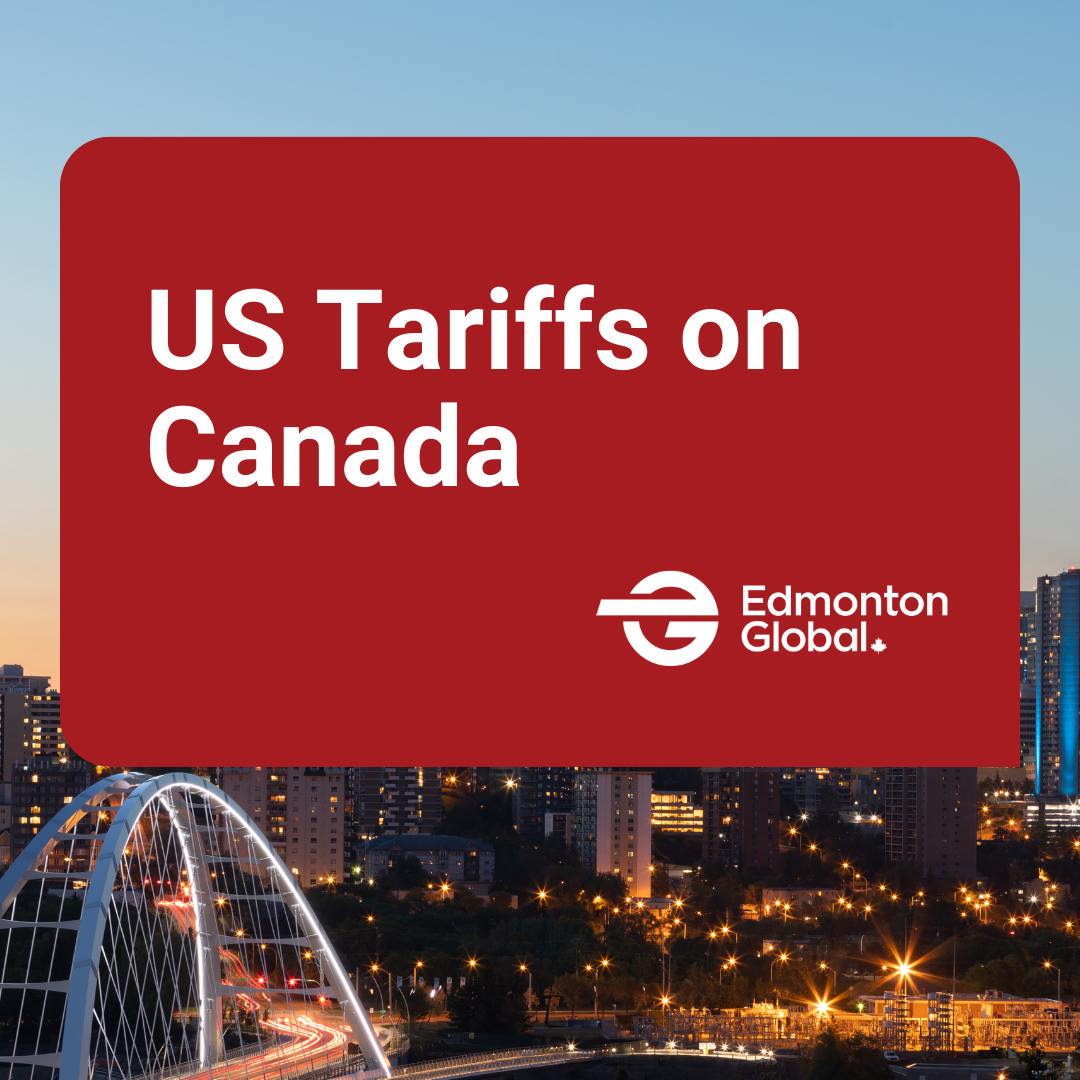
Welcome to the Regional Tariff Impact Hub
We want to hear from you!
This form allows you to share how tariffs are impacting your operations, the steps you’re taking to mitigate their effects, and any policy recommendations that could better support your business.
Access the formThis page is brought to you by the Regional Tariff Ad Hoc Working group and provides resources, tools, links and more to help businesses in the Edmonton Metropolitan Region navigate disruptions caused by tariffs and/or the threat of tariffs.
Please note: This page is being updated in real-time.
De Minimis Exception
As of May 2, 2025, the U.S. de minimis exemption, which allows goods valued under $800 to enter duty-free, remains in effect for imports from Canada.
What is the Regional Tariff Ad Hoc Working Group (WG)?
The Regional Tariff Ad Hoc Working Group was established as a proactive initiative to bring together key economic leaders from industry and economic development to align on messaging and policy recommendations, ensuring a strong and unified response. We are committed to working with federal and provincial governments to advocate for solutions that minimize economic disruption, safeguard Edmonton Region businesses and enhance global competitiveness.
We want to hear from you!
This form allows you to share how tariffs are impacting your operations, the steps you’re taking to mitigate their effects, and any policy recommendations that could better support your business.
Access the formMembers of the Regional Tariff Ad Hoc Working Group:
Enzo J. Barichello, KC, Partner, Bennett Jones LLP & Board Chair, Edmonton Global
Traci Bednard, CEO, Explore Edmonton
Jerry Bouma, Chair of the Edmonton Consular Corps & Chair of The Little Potato Company Advisory Board
Malcolm Bruce, CEO, Edmonton Global
Doug Griffiths, CEO, Edmonton Chamber of Commerce
Myron Keehn, President & CEO, Edmonton International Airport
Tanis Kozak, VP & General Manager, North America Home – Canada, Direct Energy
Leanne Krawchuk, KC, Partner, Dentons
Jillene Lakevold, co-CEO, All Weather Group
Dr. Mike Mahon, CEO, Alberta Innovates
Dr. Robert Murray, Interim VP, Planning and University Relations, Concordia University of Edmonton and Senior Fellow at the Macdonald-Laurier Institute
Mark Plamondon, Executive Director, Alberta’s Industrial Heartland Association
Chris Steele, CEO & President, EBP US
FAQ's
What is a tariff?
A tariff is a tax that a country places on imported goods. It makes those goods more expensive, which can impact businesses and consumers.
How will these tariffs impact people in Canada?
Tariffs can increase costs for businesses, which often leads to higher prices for everyday products. They can also hurt industries that rely on exporting goods to the U.S., potentially leading to job losses.
Why is the U.S. so important for Alberta’s trade?
The U.S. is Alberta’s biggest trade partner, buying over $156 billion worth of goods in 2023. It’s also the largest source of foreign investment in the province.
Will the Edmonton region be less impacted than the rest of Alberta?
No. Even though many energy company head offices are in Calgary, a large part of the actual energy sector work happens in and around Edmonton. This includes refining, petrochemical processing, manufacturing, and transportation—all industries that could be hit hard by tariffs.
Will these tariffs cause job losses in Alberta?
Possibly. Some industries might see job cuts if exports slow down or if companies move production elsewhere to avoid tariffs.
Could these tariffs lead to a trade war?
Yes. If Canada responds with its own tariffs, the U.S. might impose even more, leading to reduced trade, slower economic growth, and uncertainty for businesses.
How do tariffs affect the Canadian dollar?
If demand for Canadian exports drops, the Canadian dollar could weaken, making imports more expensive and reducing economic stability.
Does the U.S. really have a trade deficit with Canada?
Not really. The U.S. only has a trade deficit with Canada because of energy imports. If you exclude energy, the U.S. actually has a trade surplus with Canada in goods and services.
Are counter-tariffs the solution?
Not necessarily. Counter-tariffs are meant to put pressure on the U.S. by making American products more expensive in Canada. However, they can also hurt Canadian consumers and businesses by increasing prices and limiting access to important goods. We must be strategic about how we enact these tariff and how we reallocate the revenues that we gain through these tariffs.
Do tariffs hurt American businesses too?
Absolutely. Many U.S. businesses rely on Alberta’s energy, agriculture, and manufactured goods. Higher costs for these goods mean U.S. companies and consumers will also pay more.


